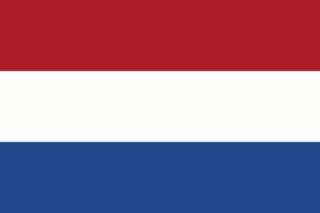For an increasing number of patients, it is difficult to make an appointment with a doctor or other healthcare provider. This is due to a patient’s decreased mobility or lack of time. The eHealth application FaceTalk provides the solution. With distance consulting, you can create a “virtual” polyclinic.
And, using the same application, you can also save time by holding multidisciplinary distance consultations with colleagues.
For an increasing number of patients, it is difficult to make an appointment with a doctor or other healthcare provider. This is due to a patient’s decreased mobility or lack of time. The eHealth application FaceTalk provides the solution. With distance consulting, you can create a “virtual” polyclinic.
And, using the same application, you can also save time by holding multidisciplinary distance consultations with colleagues.
Developed by the Radboud University Nijmegen Medical Center with several partners, this service was launched
We created FaceTalk a year ago because there was no proper system that allowed patients to be in a videomeeting with their healthcare providers without additional hardware, difficult setups, a lot of installation and the ability to share streaming video and photos such as X-rays.
Now after testing in our own facilities we’ve made it available to other Healthcare professionals
Read these experiences of healthcare professionals who have used FaceTalk:
FaceTalk Enables WorldWide Collaboration and Knowledge-Sharing Between Medical Professionals
Prof. Barentsz begins by clicking on “Share Desktop”. His screen then appears. “We are off on an anatomical journey, so to speak”, he says. “An MRI scan of the prostate consists of 1500 images, down to the molecular level.” By clicking on the mouse we can take a virtual tour of the prostate. Using various red arrows, Barentsz indicates the exact location of the tumor. We switch from a side view to a cross-section. “Now I am measuring the tumor; as you see it is 2 cm.”
“In the same way, I can teach my colleagues how to view and correctly assess these images”, explains Barentsz. “We both see the same image on which I show them how they can make an assessment, and I can explain what they have missed or how they could improve. In a sense, I am looking over their shoulder while they learn this method.”
“By using FaceTalk, I can share my knowledge. This is fantastic. Communication is everything, but how can you communicate in the best possible way? In radiology it is important that the same images are seen by multiple medical professionals. One picture says more than a thousand words. This applies to my professional field, but also to consultations. Approximately 85% of a conversation consists of non-verbal communication. During a telephone conversation, I therefore miss a great deal of information. I really want to see the people I’m talking to, and this is possible with FaceTalk. It’s also easy to share images, videos or a presentation.”
Jelle Barentsz is Professor of Radiology and Chairman of the Prostate MR Center of Excellence at Radboud University Nijmegen Medical Center. He has won a number of prizes, including the 2007 Queen Wilhelmina Research Prize.
Treatment of Skin Cancer Can Take Place Partly at Home
Distance diagnosis of skin disorders…something of the distant future? No, with the eHealth application FaceTalk this is happening today. As part of the project “Workshops in primary healthcare” a dermatologist, a general practitioner and a wound nurse are collaborating via FaceTalk on distance diagnosis of actinic keratosis, a precursor of skin cancer, and the common skin cancer basal cell carcinoma. And this has already resulted in cost savings.
The pilot project concerns two skin disorders: actinic keratosis and basal cell carcinoma. The first is a precursor of the skin cancer squamous cell carcinoma. For the general practitioner, the diagnosis of both forms can be uncertain. Previously, patients were almost always referred to the hospital. However, with FaceTalk they do not have to visit the hospital; they can simply have a skin consultation from their own GP. A nurse who specializes in wound care is also present at the practice.
GP Joost Muskens from Medisch Centrum St. Anna explains how this works: “At a prearranged time I contact Rianne Gerritsen (dermatologist at Radboud University Nijmegen Medical Center) via FaceTalk. First I introduce the patient and the specialist to each other. Then I show the dermatologist the skin the problem by using a special lens.”
“The treatment can be frightening for patients,” explains Rianne Gerritsen. “Consequently, two weeks after starting the treatment, patients must often return to the polyclinic. This is mostly to determine whether the therapy is working properly. Thanks to FaceTalk, this is no longer required…. As a result, fewer patients are coming to the hospital, which results in immediate cost savings.”
Read more testimonials or apply for a FaceTalk account at FaceTalk
To read other posts in this exclusive ongoing series, please visit the Mobile Health Around the Globe main page. And if you have a Mobile Health Around the Globe story to tell, please post a comment below or email me at joan@socialmediatoday.com Thanks!

